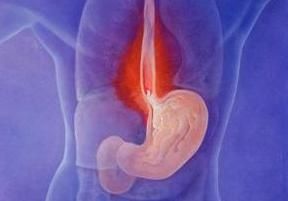Publication
Article
Surgical Rounds®
Referral Decisions Vary for Anti-reflux Surgery in Pediatric GERD
Author(s):
With no standards in place to guide referrals for children with gastroesophageal reflux disease, variation in procedural decision-making among pediatric subspecialists is expected.

While few children develop gastroesophageal reflux disease (GERD) that is severe enough to warrant surgery, those who aspirate, fail to respond to medical management, or have issues with medication dependence, tolerance, or adherence are generally good candidates for a procedure.
Although the North American Society for Pediatric Gastroenterology, Hepatology and Nutrition (NASPGHAN) recommends operative therapy for children with GERD who have intractable symptoms, as well as those at risk for life-threatening complications, pediatric hospitals report widely varying rates of anti-reflux procedures (ARP). Most quality-measuring organizations believe this inconsistency among institutions represents an opportunity to improve care and save money.
In a study published in the May 2014 issue of Surgery, researchers at the Indiana University School of Medicine and the Regenstrief Institute in Indianapolis revealed the lack of standardized referral guidelines for pediatric subspecialists is likely the cause of the variation in ARP rates across hospitals.
After conducting interviews with 5 developmental pediatricians, 4 gastroenterologists, 3 pulmonologists, and 3 neonatologists at a single children’s hospital, the researchers constructed algorithms describing the providers’ decision-making processes and analyzed them using a validated comparison tool.
Although one would expect practitioners at the same institution to produce somewhat similar algorithms, the interviews yielded 15 unique algorithms, which reflected large variation in the providers’ perceptions of the risks and benefits of their available treatment options. Nevertheless, all of the algorithms were consistent with the NASPGHAN recommendations for surgery.
Still, significant variation in testing and management occurred both among and within subspecialties. For example, 33% of algorithms incorporated esophageal pH probe tests, 67% included upper gastrointestinal (GI) tests, and 47% comprised small bowel follow-through. In terms of the variation in procedure contraindications, one-third of subspecialists believed ARP was contraindicated in patients with a history of gagging, while 20% indicated they would recommend gastrojejunostomy tubes prior to ARP.
With no standards in place to guide referrals for children with GERD, variation in decision-making among pediatric subspecialists is expected, the study authors concluded. Thus, prospective, outcomes-oriented studies are needed to create consistent guidelines and answer the many questions associated with pediatric GERD.





